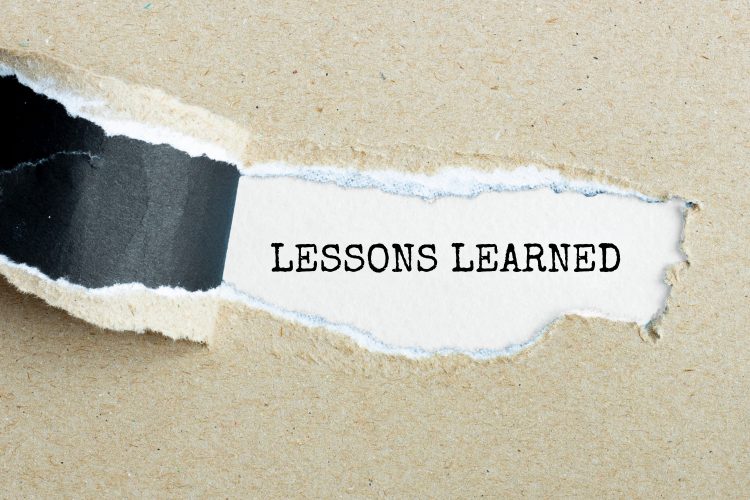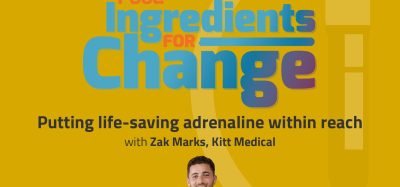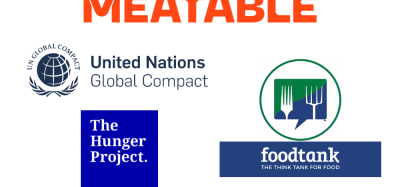Valuable lessons to take away from COVID-19
- Like
- Digg
- Del
- Tumblr
- VKontakte
- Buffer
- Love This
- Odnoklassniki
- Meneame
- Blogger
- Amazon
- Yahoo Mail
- Gmail
- AOL
- Newsvine
- HackerNews
- Evernote
- MySpace
- Mail.ru
- Viadeo
- Line
- Comments
- Yummly
- SMS
- Viber
- Telegram
- Subscribe
- Skype
- Facebook Messenger
- Kakao
- LiveJournal
- Yammer
- Edgar
- Fintel
- Mix
- Instapaper
- Copy Link
Posted: 21 May 2020 | Bethan Grylls (New Food) | No comments yet
New Food’s Editor, Bethan Grylls, outlines some of the issues Covid-19 has highlighted in the global food and beverage supply chain and urges industry to take note.


In a short space of time, the world has been turned upside down. It has been both physically and mentally draining for everyone, not least those personally affected by the potentially deadly coronavirus (COVID-19), or the hardworking individuals that are saving lives, keeping nations fed and ensuring key operations continue to function.
I have been overwhelmed by the way in which our food system has adapted, the heroic and selfless acts that I have read about across the globe, and the innovative partnerships coming to the fore. I am proud of our industry, but that does not mean it is without its flaws.
A lot of vulnerabilities and inequalities have come to light since the COVID-19 pandemic – inside and outside the food industry – and what I hope is that once the dust has settled, we’ll be able to take time to reflect and improve upon the holes and discrepancies in our system.
Firstly, it is evident that in some areas of the world, imports are far too heavily relied upon. Of course, imports/exports are necessary for some commodities and I am not suggesting they should stop completely, but with the threat of border closures and other areas of the world going into strict lockdowns, nations may begin to face shortages. For example, in the UK, we may soon start to have issues accessing fresh fruit and vegetables.
Secondly, industries need to start thinking innovatively about the markets they supply – before and after the pandemic. Take for example, US dairy farmers, who have been tipping away excess milk due to closures of coffee shops and restaurants. Food waste is already a huge issue, so it’s crucial we do not contribute to this further.
It’s particularly saddening to hear news like this when there are so many suffering in poverty. Due to the pandemic, schools have been shut and some are out of work, and the households that will have relied on that one free meal a day and/or had their regular income stripped from them, will now be in an extremely difficult position. We need to seriously rethink our priorities and how we can best help these people now and post-pandemic.
Some businesses have begun redirecting supplies to those who need it and I applaud them for their valiant efforts. For those who have not and are able, I urge them to do so.
Consumers can also help alleviate waste of course, by supporting local, independent businesses, rather than solely relying on supermarkets. For example, many farms in the UK have dairy vending machines on-site – arguably, a far more appealing idea than queuing outside for an hour just for a pint of milk.
Lastly, I address the issues of zoonotic disease and antibiotic use. According to the Centers for Disease Control and Prevention (CDC), “three out of every four new or emerging infectious diseases in people come from animals.”
Is our food system as safe as it could be? I look to previous outbreaks such as Ebola, swine flu and BSE (mad cow’s disease), among many others, and question whether we are just making the same mistakes over and over again? Couple this with increasing antibiotic resistance as a result of its overuse in livestock, and we have a real problem on our hands when it comes to fighting off these infectious diseases.
It is easy to appreciate something once it’s lost, and it is just as easy, if you’re lucky to get a second chance, to take it for granted again. I do not profess to have the ultimate answer to such complex matters, but hopefully this experience will teach us all a valuable lesson and one that we do not forget.
The above is taken from our Editor’s welcome in Issue 2, which is available online here! Featuring articles on…
- FOOD SAFETY
Safety in the face of a pandemic. - SEAFOOD
A schooling on marine biotoxins - INGREDIENTS
Beta-alanine and the importance of quality - HYGIENE
Keeping safe in scary times. - LAB INSIGHTS
Measuring vitamins
Issue
Related topics
COVID-19, Food Safety, Food Security, Food Waste, Hygiene, Recruitment & workforce, retail, Sanitation, Supermarket, Supply chain, Sustainability, The consumer, Trade & Economy









